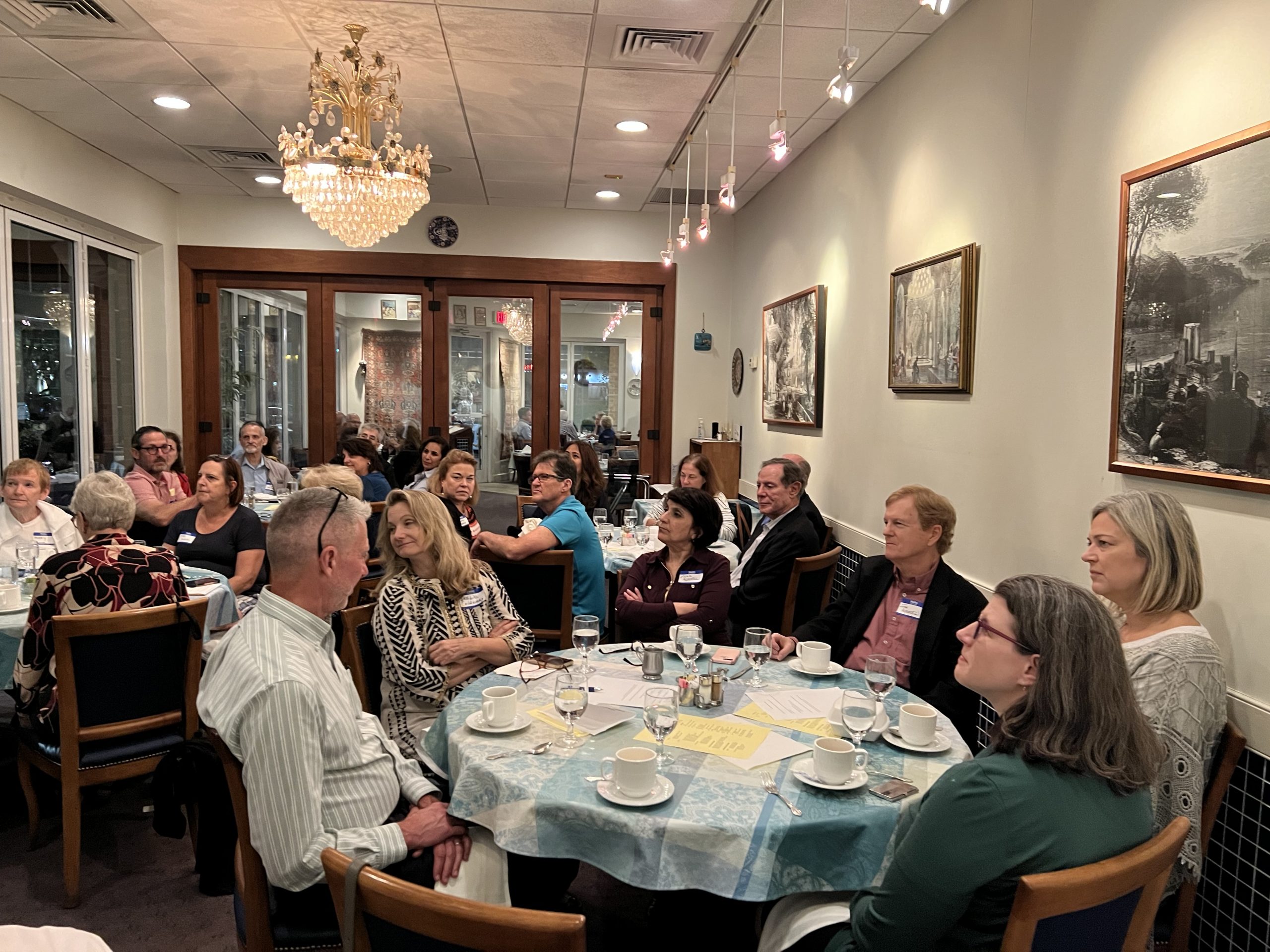
On the evening of October 2nd, 2023, the Tysons / McLean area witnessed a remarkable display of unity and interfaith dialogue as members of the Baha’i Faith and the Emmanuel Lutheran Church came together for a dinner meeting. This event, held at the heart of McLean, exemplified the power of faith and cooperation in fostering understanding and harmony among diverse religious communities.
The dinner meeting, which took place at a local restaurant, was a testament to the belief that in the face of differences, unity and mutual respect can prevail. The evening began with a warm welcome from both sides, with representatives expressing their eagerness to engage in open and meaningful dialogue. The Baha’i Faith, known for its principles of oneness and unity, and the Emmanuel Lutheran Church, rooted in the teachings of Martin Luther, came together with a shared purpose: to strengthen bonds, promote tolerance, and engage in dialogue.
One of the key highlights of the evening was the heartfelt discussions on the common values that bind these two Faiths. Participants explored their shared beliefs in compassion, service to others, and the importance of community building. These commonalities served as a foundation for a deeper understanding of one another’s Faith traditions.
Another poignant moment of the evening was when individuals from both Faiths shared personal experiences and expressed their regret for not having had the opportunity in the past to learn about one another’s Faiths. The Baha’i participants spoke about the centrality of unity in diversity and their commitment to global peace. The members of the Emmanuel Lutheran Church shared their dedication to living out their Faith through charitable acts and outreach in the community. Through these narratives, a strong bridge of understanding was built that went beyond theological differences and focused on the shared humanity that binds us all.
The dinner event provided an opportunity for participants to learn more about each other’s backgrounds and the profound commonalities that exists between the two Faiths.
As the evening concluded, it was evident that the dinner meeting had been a significant step towards fostering interfaith dialogue and mutual respect in the Tysons / McLean area. The participants left with a profound sense of gratitude for the opportunity to connect with people from different faith backgrounds. They also expressed their commitment to continuing the dialogue and expanding these interfaith gatherings in the future.
In an increasingly diverse and interconnected world, events like the dinner meeting between the members of the Baha’i Faith and the Emmanuel Lutheran Church play a crucial role in promoting harmony and understanding. By emphasizing the common values and shared humanity that bind us all, this event serves as a model for how different Faith communities can come together in the spirit of unity, love, and friendship.
The dinner meeting on October 2nd was a powerful testament to the potential for collaboration and mutual respect among diverse Faiths. It demonstrated that, no matter our differences, we can find common ground and build bridges of understanding that strengthen our communities (which is much needed now more than ever) and make the world a better place starting at the local community level.
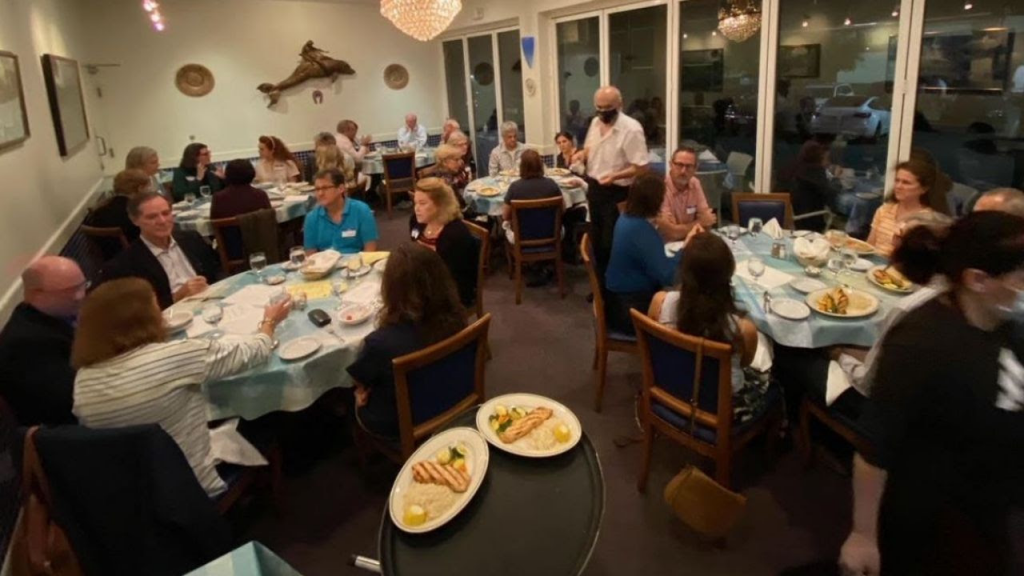
This blog post is the expressed opinion of its writer and does not necessarily reflect the views of Tysons Interfaith or its members.
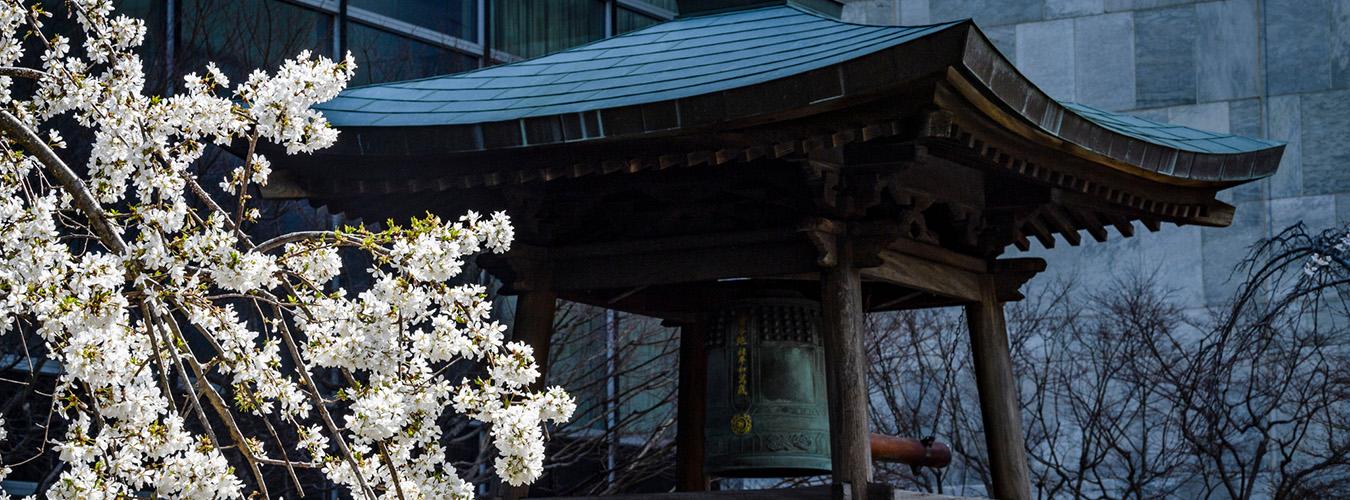
The International Day of Peace was established in 1981 by the United Nations General Assembly. Two decades later, in 2001, the General Assembly unanimously voted to designate September 21st as its annual commemoration – a 24-hour period of non-violence and cease-fire for groups in active combat.
Through the years it has been realized that “active combat” is not limited to war zones. Active combat is experienced in cities and country sides aroused by fear, avarice, racism and other prejudices, politics, and contrasting ideologies.
The origin of the World Day of Peace can be traced back to 1967 when Pope Paul VI established it as a feast day of the Catholic Church. It was designated as a day of universal peace devoted to commemorating and strengthening the ideals of peace both within and among all nations and peoples. It has come to be a time to actualize those ideals – to promote and maintain peace.
The United Nations also celebrates the International Day of Living Together in Peace, annually on May 16th, to stir individuals to mobilize efforts within the international community to promote peace, tolerance, inclusion, understanding and solidarity.
Imagine people of all nations, cultures, religions, and backgrounds working side by side in harmony. The power of imagination has been the root of social change throughout the ages, however, if left solely in the imaginal realm, nothing happens. Change happens when our imagination inspires us to action – action that is uniquely our own – action that uproots us from our complacency and calls us each to use our Divinely imbued skills and abilities to support our world in rising out of violence into peace.
Some people who describe themselves as peace advocates have difficulty wrapping around the notion that they can be both a powerful presence for peace and be an activist. Jesus was a Love activist: He came to teach love, and He was an unwavering stand for what he believed.
An activist is merely someone who is willing to stand by and for his/her values and beliefs. It is a willingness to engage on behalf of something that matters – equity, environment, health, welfare, education, to name just a few. Often that stand is taken vigorously, perhaps emphatically, and is the out-picturing of a passionate desire to do good. It can be extremely empowering.
Spiritual activism engages the power of spiritual consciousness and groundedness to guide individual actions. Spiritual activism takes myriad forms ranging from contemplative prayer to marching and picketing. How we each display our activism is as varied as humanity. Our shared common goal is to effect change based on spiritual principles and values. The outward expression of our activism emerges from our inner work. Peace activists, generally, lean toward pacifism, choosing nonviolent methods to prevent or end violent conflicts, to end non-democratic rule, and to dissolve prejudices such as racism, homophobia, and gender biases. Spiritual activists, many of whom are Peace activists, use peaceful means to achieve change. I am both. We express our views clearly, but succinctly and at a volume that doesn’t have others reaching for ear plugs. We avoid winding ourselves into a frenzy over things we can’t control. Instead, we draw on inner strength and guidance using attributes such as our belief in the Oneness of all creation, Love as a universal principle, compassion and reciprocity, simplicity and optimism, harmony and humility, responsibility, and accountability. We set the intention to be kind and considerate and refrain from criticizing others. We join together to make the world a better place. We are drawn to like-minded people wherever we are and connect spontaneously.
The question arises, why should I be an activist? Activism seeks to influence social and political outcomes by mobilizing citizens to take actions that generate widespread or well-targeted public attention around specific issues.
The United Nations International Day of Peace and their International Day of Living Together in Peace are occasions in which Peace activists around the globe present public dialogues, peace meditations and vigils, and an array of educational offerings to heighten awareness and support of Peace. Each of these is a form of “Peace Demonstration.” We draw attention to the need to heal our planet and grow strong peaceful communities.
The actions we take are demonstrations of Spirit’s call within us to do our part to manifest a world that works for everyone. Each of us has an inborn desire to experience peace. We sense the call to remove all obstacles to the free flow of peace and love. We respond affirmatively to opportunities to become radiantly contagious purveyors of peace, connecting with individuals, bringing them together in small groups that grow into larger and larger groups of individuals dedicated to peace – the essential foundation of a world that works for all.
Our efforts cannot be haphazard – we need to abide in and as peace moment by moment.
This year marks the 42nd anniversary of the United Nations General Assembly declaration “International Day of Peace.” Its purpose remains strong and essential to the wellbeing of our planet and all its inhabitants. Life is better in a world at peace.
Regardless of where we come from or what languages we speak, we are more alike than we are different. Honoring our commonalities makes peace possible. We draw on the wisdom and experience of the peacemakers and peacekeepers to learn how we can individually and collectively be catalysts for peace – how we can manifest a world that works for everyone, everywhere.
Violence is common in nations and communities that struggle with poverty, disease, and limited access to education and healthcare. Until we are willing to soften our own perspectives so we can catch a glimpse of someone else’s experience, peace will remain beyond our reach.
Peace is possible. We have the opportunity to transform the world so that our loved ones can live in sustainable peace. We are called to step outside our comfort zones – to become Peace Advocates. The impact of each small act is immense.
Join me again in the imaginal realm: Envision and feel how different life would be if we all were simply kind and respectful of one another. We can all contribute to the worldwide culture of peace through generosity of spirit, prayer, advocacy, education and ensuring access to clean water and health resources. Every small effort makes a difference.
Today, more than any other time in history, peace relies on the commitment to not only achieve equality, but to secure equity for all persons – to fulfill our vision of a world that works for everyone, everywhere.
This blog post is the expressed opinion of its writer and does not necessarily reflect the views of Tysons Interfaith or its members.

On the evening of Friday, September 15, Jews begin a month of High Holy Days with Rosh Hashanah, the Jewish New Year. Rosh Hashanah is a celebratory day on which it is traditional to gather for festive meals, but it and Yom Kippur are also the two days of the year that draw the most Jews to attend synagogue services. The ten-day period beginning on Rosh Hashanah and ending on Yom Kippur are a time of renewal, reflection and repentance called the Days of Awe.
One of the important parts of the holiday ritual is the blowing of the Shofar, or ram’s horn. Leviticus 23:24-25 reads, “Speak to the Israelite people thus: In the seventh month, on the first day of the month, you shall observe complete rest, a sacred occasion commemorated with loud blasts” of the Shofar.
One part of the synagogue service all around the world on this day is dedicated to the blowing of the Shofar. The leader of the service, either Rabbi or Cantor will give the person blowing the Shofar a direction of what note to sound. There are four different calls. The first is Tekiah, a short blast that rises in pitch at the end. This is interpreted as the summons to prayer. Shevarim, the second call, consists of three short blasts that rise in pitch. It might be meant to suggest weeping, in regret for our transgressions. Third, Teruah, 3 triplets or 9 short, staccato blasts, is thought of as an alarm to wake us from our slumber. Finally, the last call is Tekiah Gedolah (literally, “big tekiah“), which is the Tekiah blast held as long as the Shofar blower has breath.
This part of the service is anticipated by worshippers of all ages, giving them a sense of community and belonging, a sense of the continuity of praying in the same manner as our ancestors have for thousands of years, and most importantly, symbolically waking us up to hold ourselves accountable for our actions and make the world a better place.

This blog post is the expressed opinion of its writer and does not necessarily reflect the views of Tysons Interfaith or its members.

This week marks two holy days observed by our Jewish and Muslim friends and neighbors.
TISHA B’AV
Tisha B’av begins at sunset Wednesday, July 26 and is observed until sunset on Thursday, July 27. It occurs on the Ninth of Av on the Jewish calendar, which is the day of remembrance of the destruction of the Temples and other disasters in Jewish history.
During the course of the centuries, a number of tragedies have clustered around this day, from the expulsions of the Jews from England and Spain to more localized disasters. Tisha B’Av is therefore observed as a day of communal mourning, which is expressed through fasting and the abstention from pleasurable activities and extraneous diversions.
As with Yom Kippur, it is a solemn day and therefore it is inappropriate to say “Happy Tisha B’Av.”
However, there are some Hebrew words that might be helpful to know if you interact with Jewish friends and neighbors during this time:
Tisha B’Av (tee-SHAH b’AHV) or (TISH-ah Bahv) – The Ninth of Av, on which the destruction of the Temples and other disasters in Jewish history are remembered.
Av (AHV) – The eleventh month of the Jewish year.
Megillat Eicha (meh-gee-LAHT AY-khah) – the Scroll of Lamentations, is read on Tisha B’Av.
Tzom (TZOHM) – a fast. The fast for Tisha B’Av is from sunset to sunset. Those who keep the fast refrain from eating, drinking, sexual activity, anointing, wearing leather shoes, and studying Torah. It is similar to the fast for Yom Kippur. Just as on that day, children and people who are sick or pregnant should not fast.
Beit Hamikdash (BAYT ha-mik-DAHSH) – The Holy Temple. The first Temple was destroyed by the Babylonians in 586 BCE. The second was destroyed in 70 CE by the Romans.
The Kotel (KOH-tel) – The Western Wall, a retaining wall that is all that remains of the Second Temple. Jews do not refer to it as the “wailing wall,” but as the Western Wall or the Kotel.
ASHURA
The link below gives a detailed explanation of the Muslim Holy Day of Ashura, observed this Friday, July 28th and usually marked on the tenth day of the month of Muharram on the Islamic Calendar.
You will find it interesting to see the emphasis of the Sunni Muslims on the Exodus of the Israelites from Egypt and the Shia Muslims’ emphasis on the death of Imam Hussein.
middleeasteye.net/discover/what-is-ashura-how-do-shia-sunni-muslims-observe
Learning about the religion and observances of our Muslim brothers and sisters will inspire our gracious wishes towards them for a most meaningful Holy Ashura.
Muharram Quotes, Greetings and Messages
1. Wishing you a blessed Islamic year!
2. May this Islamic year find you in the best of faith and health.
3. May God allow you to enter this new year in faith and security.
4. May we be closer to God in this new Islamic year.
5. Hope you get everything you wish for in this new year.
I also found this beautiful greeting you can use and edit as you wish:
Have a blessed Muharram! On the auspicious day of Muharram, may Allah bless you with health, wealth, peace and happiness! Wishing you and your family a New Year full of peace, happiness, and abundance of all. May Allah bless you throughout the new year.
This blog post is the expressed opinion of its writer and does not necessarily reflect the views of Tysons Interfaith or its members.
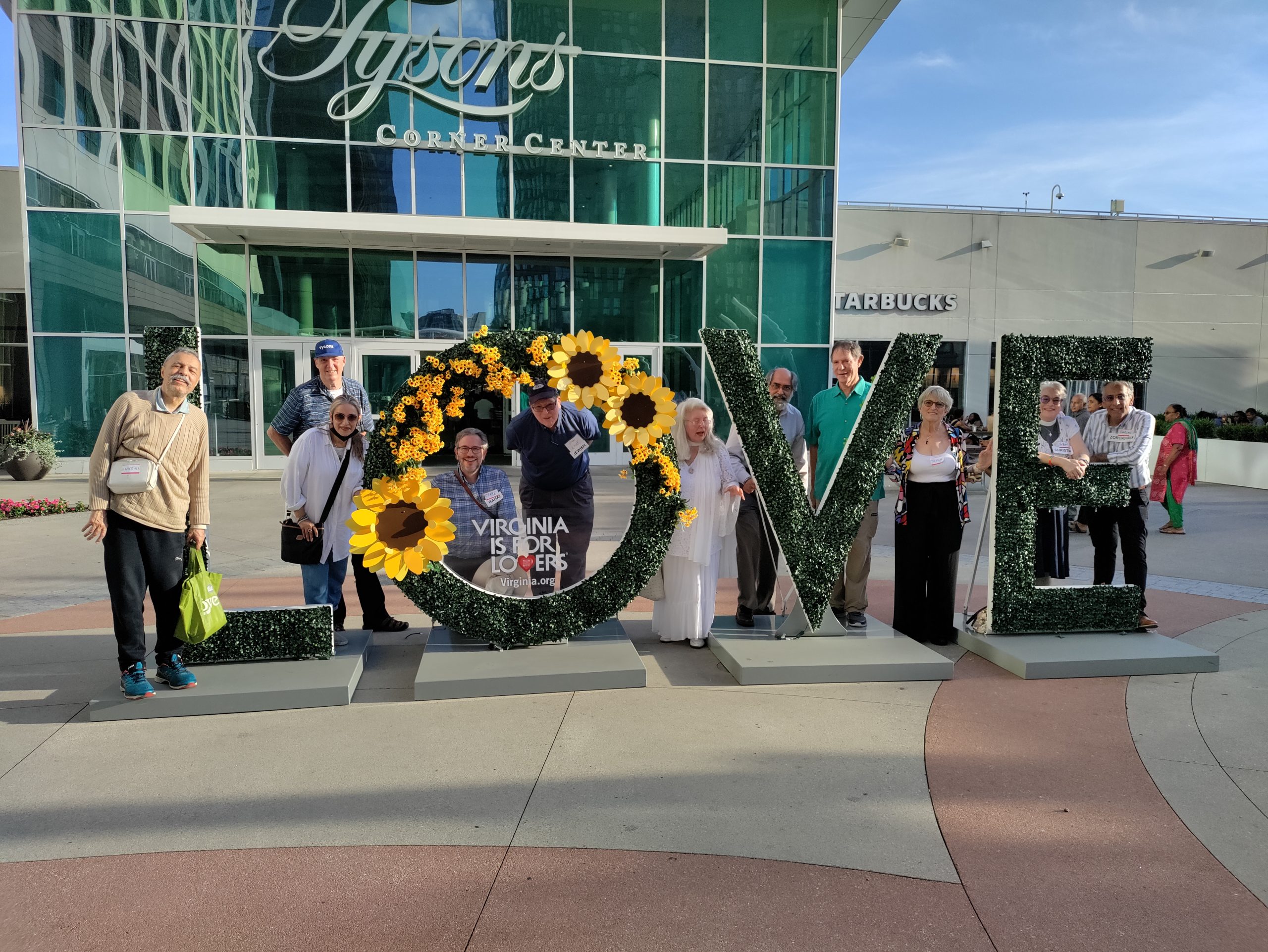
On June 25, Tysons Interfaith gathered representatives of the Sikh, Bahai, Zoroastrian, Jewish, and Christian faiths in a corner of The Plaza at Tysons Center Mall for an informal dialog. As the perhaps puzzled onlookers strolled by, our guests warmly shared their own religious story and key tenets of their faith.
Farzad Ardun (Zoroastrian) said his faith all comes down to “right thoughts, right words, and right actions,” an ethic the other participants enthusiastically shared. Chase Foster (Bahai) noted how all the great religions share some formulation of the Golden Rule. Pammi Sachdeva (Sikh) believed that people accept the religion that goes along with the culture that they are born into, often without a critical or deep appreciation, but that his faith had deepened and matured in surprising ways over the years. The Very Rev. Fran Gardner-Smith (St. Thomas Episcopal) described her journey through various Christian denominations until she found her home. Rabbi Chuck Feinberg stressed the importance of appreciating our differences, which is what gives interfaith work so much vitality.
While the sun was hot, the discussion was loving and respectful. Everyone appreciated learning more about traditions that were not their own and for a chance to meet new people and begin developing relationships with representatives of other faiths. Future exchanges might delve further into various formulations of the Golden Rule or how we can carry out the injunction to pursue good thoughts, good words, and good deeds.
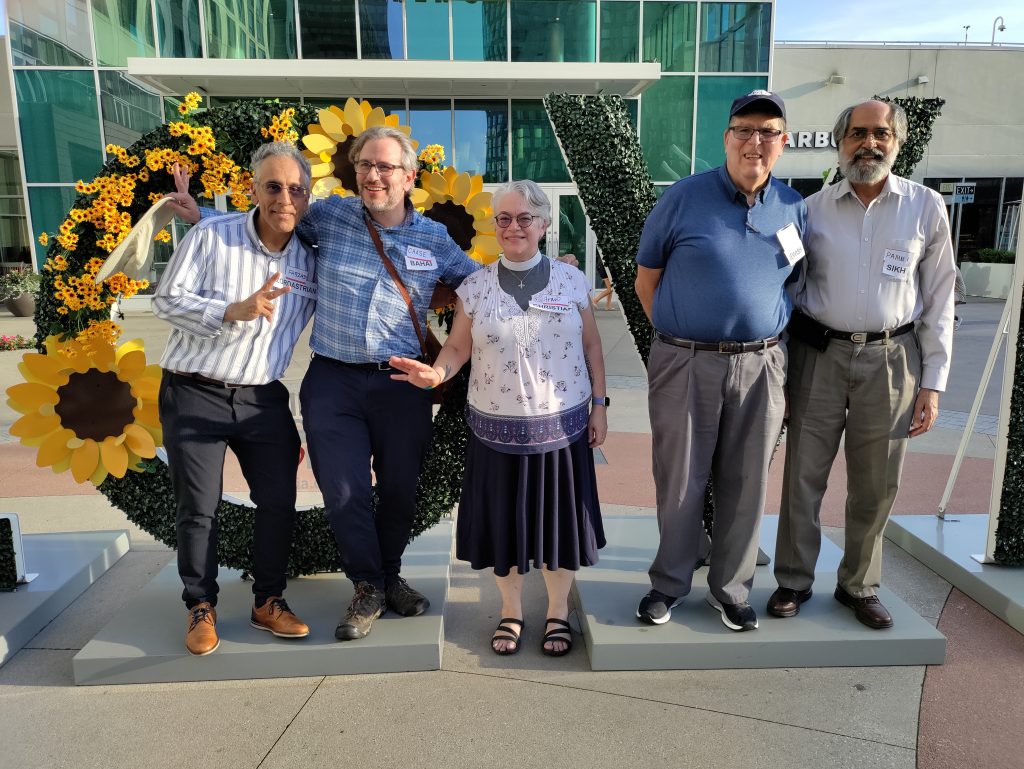

Tysons Interfaith is pleased to present a series of blog posts highlighting local non-profit organizations who are doing so much to help our neighbors. Please consider helping these groups with your time and resources. For a list of nonprofit organizations working in the Tysons area please visit: tysonsinterfaith.org/resources/
What is Share?
- Share Inc. is a 501 (c) (3) non-profit organization. To see our IRS Form 990 annual financial reports, click here.
- Though we are not religiously affiliated, we were established in 1969 by a coalition of local faith communities to help meet the emergency needs of our neighbors in McLean and the nearby areas of Northern Virginia.
- We are an all-volunteer organization with no paid staff, no office, and no paid fundraisers, therefore, nearly all donations directly benefit our neighbors in need.
- Share assistance includes a food pantry, clothing room, furniture program and family assistance program.
- We are supported by generous donations from local religious congregations, community organizations, neighborhood businesses and individuals. Our food and clothing rooms are housed is space donated by McLean Baptist Church.
- It currently takes more than 1000 volunteer hours per month to run our programs, so we are always recruiting new volunteers.
The Neighbors We Serve
- Our neighbors in need are economically distressed families and individuals, seniors living on limited incomes (often facing medical issues), new immigrants and victims of spousal abuse, as well as the homeless.
- The neighbors we serve are referred to us from participating faith communities, county social services, and a number of non-profit groups serving special need groups (such as victims of spousal abuse or the formerly homeless).
- Before being granted services, these neighbors are screened to ensure they fall within our service area and have an appropriate level of need.
- We serve the working poor, disabled persons, the homeless, recent immigrants and the elderly as well as those facing a crisis such as illness, job loss or other family emergency.
- Last year, we provided services to over 2,000 families including 4,500 household members, most of whom are children.
For information on how to volunteer or donate to Share of McLean, please visit shareofmclean.org

Most Needed Items
June 2023
FOOD:
Pasta (spaghetti, elbow, penne)
Canned tomatoes (diced, sauce)
Pasta sauce (cans or plastic jars)
Canned chicken
Peanut Butter (16 oz)
Canned fruit (fruit cocktail, peaches)
Canned corn
Canned beans (chickpea, pinto, kidney)
Vegetable oil (plastic jars: 24 oz, 48 oz)
PERSONAL CARE ITEMS:
Diapers (Sizes 5-7) and pull-ups (4T, 5T)
Adult diapers (all sizes, both genders)
Toilet paper / paper towels
Shampoo / Conditioner
Laundry detergent (20 – 40 loads)
Baby wipes
______________________________________________________
Please remember: NO GLASS, NO OVER-SIZED items, and no items past their “Best if Used By/Before” date.
Share would welcome re-usable grocery size bags, paper shopping bags with intact handles, and plastic grocery bags (used but intact).
Note: Share can accept refrigerated and frozen goods such as chicken, fresh produce, yogurt, cheeses, and eggs but only by prior arrangement (contact: sharevolunteers1367@gmail.com).
This blog post is the expressed opinion of its writer and does not necessarily reflect the views of Tysons Interfaith or its members.
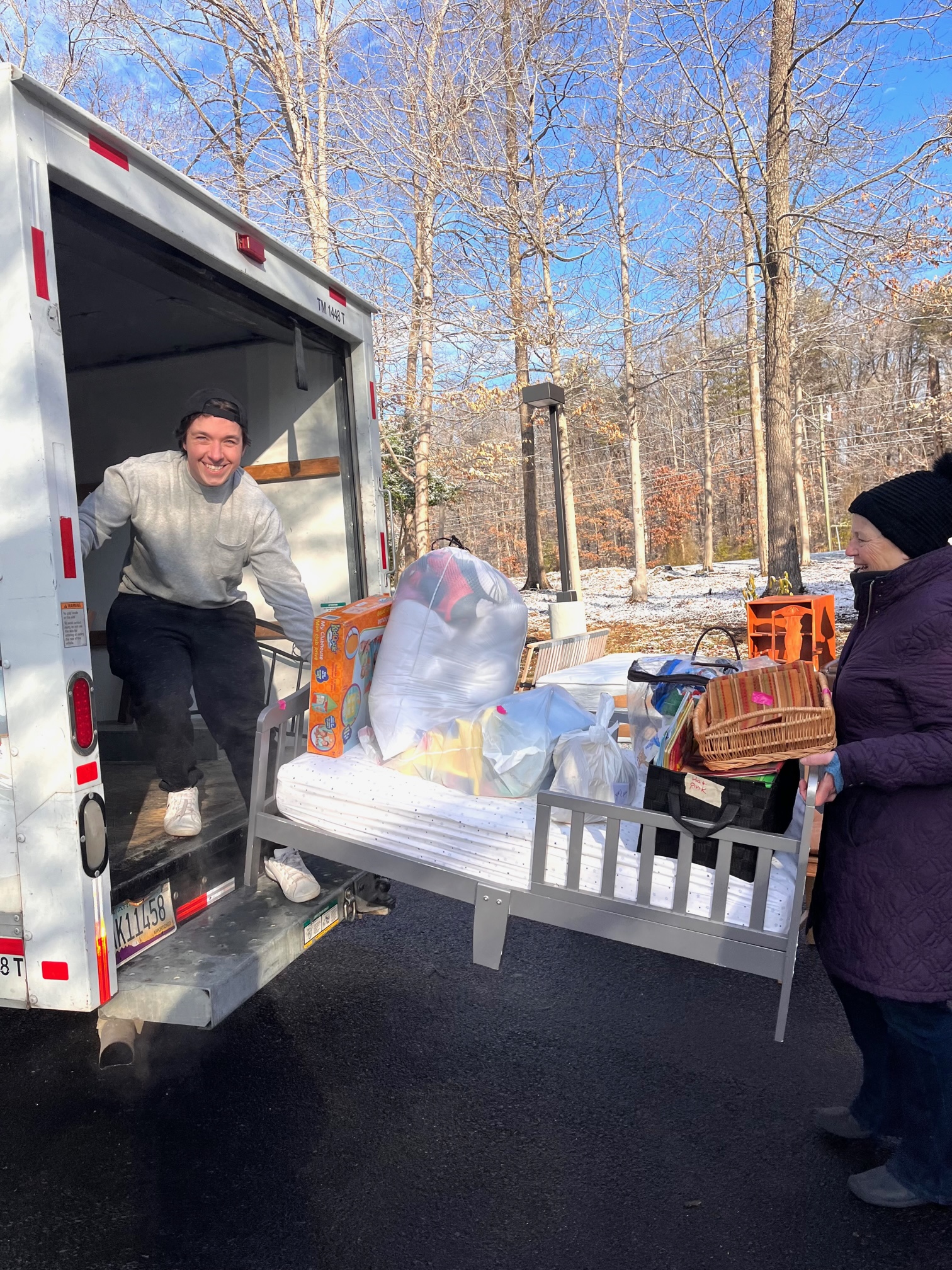
Tysons Interfaith is pleased to present a series of blog posts highlighting local non-profit organizations who are doing so much to help our neighbors. Please consider helping these groups with your time and resources. For a list of nonprofit organizations working in the Tysons area please visit: tysonsinterfaith.org/resources/
Gracing Spaces (former ministry of Lord of Life Lutheran Church), is now an independent local charity with a 501(c)(3) status.
When you grow up attending a Lutheran church, you often hear the phrase, “God’s work. Our hands.” Born into our identity as Lutherans is a desire to serve our neighbors out of love and obedience to the Lord. Gracing Spaces, a local volunteer organization that furnishes homes for families in transition, is one way that many of us feel called to serve.
Twenty years ago, a newly engaged Amanda Baumgart encouraged her mom to nix the traditional bridal shower and opt instead to renovate a room at a local halfway house. The attendees had such fun that they went back to give the entire house a makeover, deciding that this house could be the first of many. And it was—it was the first of thousands. A growing group of volunteers began to “grace spaces” in the northern Virginia community—coordinating with social workers to identify needs in the community and work to meet them.
Lord of Life Lutheran Church in Clifton, Virginia, loaned Gracing Spaces their unfinished basement which became “the depot.” Like a department store, the depot housed kitchen goods, linens, children’s clothes, tables, chairs, sofas, bookshelves, baby products, toys, beds, cleaning supplies—really anything that people were willing to donate that could “grace the space” of someone in need. A workshop was set up, so furniture was repaired instead of going to the landfill. Donors, often in times of grief and transition, walked away from the depot a little lighter, knowing the loved objects of their lives would find a good second home. For fourteen years, volunteers gathered every week to fill “orders”, working to coordinate furniture and add decorative touches to make sure spaces became homes. Vehicles that came into the parking lot empty went away full. On weekends (makeover days), empty spaces became homes.
In 2022, Lord of Life no longer felt that they could singly support Gracing Spaces since the ministry had grown profoundly over twenty years, so we had a decision to make—should we close up shop or evolve? Looking at the need in the community and knowing we could help, there really was no choice. We still had work to do—God still wanted our hands busy serving our neighbors.
A year later, we look a bit different. We have many “depots”—basements, garages, public storage units. We are independent, with a 501(c)(3) status and a board of directors. We have committees to help with fundraising and marketing. One thing is unchanged: our mission to give a “hand up” to the most vulnerable in our community by making their new spaces into homes.
Our biggest need is for a new “depot”, a donated or affordable warehouse where we can work and grow the ministry. After all, furniture takes up space! We are fundraising seed money to rent a property, so financial contributions and new partners in ministry (https://www.gracingspaces.com/donate-money) are a wonderful blessing to our organization as well.
For twenty years, we have found great joy in moving goods from where they are no longer needed into places where they are. We pray for another twenty years, knowing our community is stronger when we care for one another.
Love and serve without distinction all earth’s people, first and least,
Know within each act of kindness, hope and wholeness are increased.
“See my hands and feet,” said Jesus, love arisen from the grave.
“Be my hands and feet,” said Jesus, “live as ones I died to save.”
–“See My Hands and Feet” by Mary Louise Bringle

This blog post is the expressed opinion of its writer and does not necessarily reflect the views of Tysons Interfaith or its members.

An article I read from the Stanford Center for Longevity notes that there is a relationship between volunteering and improved physical health and cognitive function. “Research also shows that volunteers report elevated mood and less depression, and that volunteers report increased social interactions and social support, better relationship quality, and decreased loneliness.” longevity.stanford.edu A contributor to Deseret News had this to say about her volunteer experience: “I’ve experienced the boost in happiness, the sense that I was part of something bigger. I made friends, formed connections that I still have to this day, and I felt more optimistic about the world when I was surrounded by people who, like me, were trying to help others.” deseret.com/coronavirus/2022/4/17.
Of course, volunteering strengthens communities as well. As people of different backgrounds come together to serve our neighbors, we discover that we have much more in common than we ever imagined. Whether it is donating our time, talents or resources, each selfless act truly does help make the world a better place.
Want to learn more about some of the non-profits doing phenomenal work in the Tysons area? Spring and summer 2023, Tysons Interfaith will present a series of blog posts highlighting local organizations that are working to improve the lives of our neighbors. Please look for these periodic posts, or feel free to visit the Tysons Interfaith Resources Page for a comprehensive list of non-profit organizations in our area: tysonsinterfaith.org/resources.
This blog post is the expressed opinion of its writer and does not necessarily reflect the views of Tysons Interfaith or its members.
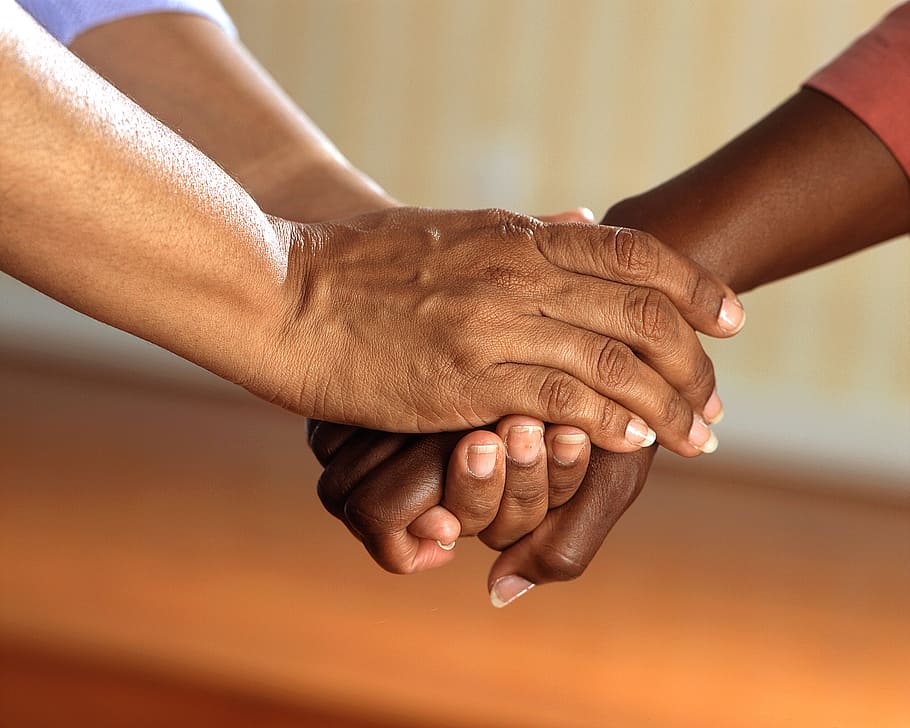
What is your “worldview”? What do you hold dear? The answers to these questions are both the composite and the creator of your attitudes, values, stories, and expectations about your world and the world around you. They inform your every thought and action. Your worldview manifests as your ethics, religion, philosophy, and beliefs.
We arise from our cultures of origin, so we are a product of that culture, and we have everything that is necessary to be the producers of new cultures. Humans have been creating cultures since we first walked the earth.
Are you a “glass-half-full” person – an optimist that sees the positive in everything, or a “glass-half-empty” pessimist that goes to the darker side, thinking the worst of any situation? Most of us vacillate between the two depending on context.
If you had magical powers (which, of course, you do), what culture would you create? Would it be utopian? Would everyone get along without challenges or disagreements? Would it be so peaceful that terminal stasis might set in? Or would it be a world in which citizens are truly free to think independently, to share the breadth of their creativity, to debate respectfully, challenge other’s opinions without fear, collectively focusing on solutions and constructive evolution? Could a world of health, harmony, and unconditional high regard that supports everyone in living their best yet to be, prevail?
Thousands of people gathering in small groups are responding to the heart-call to create a world that works. In the interfaith world, we are creating a culture of connection that begins with compassionate curiosity. We are concerned about others’ experiences and encourage everyone to learn with and from one another. Kindness, stemming from mutual respect, is blossoming. Curiosity, which plays a huge role in how we relate to our world, is the strong desire to learn something more, something new. Our willingness to reach beyond the culture in which we were raised depends on our internal sense of safety blended with the divine urge to experience the unknown. Our culture of origin instilled acceptable and customary beliefs and social forms and formulas in us. We unconsciously embraced the material traits of our racial, religious and social groups. This worldview has out-pictured as our everyday existence – our way of life and the people with whom we share our lives. It is how we relate to all creation, our chosen diversions, the places we reside and our travels. As years have passed, some have stayed deeply linked to those original perspectives. Most of us have evolved, some more than others.
Some people look at the world and see it fractured, fragmented into myriad separate pieces. All they see are differences: different skin color, different size, shape, ethnicity, religion … different climates, different architecture. Different everything. Theirs is a world of “me and us” versus “other” – constantly contrasting what they believe to be known and safe with all that is different. The leap to an assumption that “different is dangerous” is all too easy. Gripped in fear, “fight, flight or freeze” instinctive, defensive reactions take over. Resourcefulness disappears.
Others, drawn by our common human desire to connect, may be challenged to find ways to relate to those individuals and groups that don’t align with our worldview. When confronted with personalities and appearances unlike ours, we may fumble and experience a jumble of emotions, yet continue to pursue connection. We experiment. Some of our tries turn out to be life-affirming and others quite opposite, and we don’t give up. We look around and note in awe and wonder, the myriad distinction of creation in expression. We drink in commonalities and celebrate all the differences. We recognize that we are looking at the same world through different subjective filters.
Commonalities prevail throughout nature. We are all made of the same stuff. For the most part, it is only when personality, rather than physicality, is brought into the equation that concerns about “different” crop up. Distinctions within commonalities are what make Life rich. Innate distinctions are what express as myriad appearances, gifts, talents, and desires.
The tension of opposites – the pull and push of life – stirs creativity. New solutions, new ways of being together are revealed. The Divine Urge within each of us desires to resolve conflict and harmonize our world. Coming together across myriad cultures and faith traditions, contemplating co-existence, I hear within me, Elizabeth Barrett Browning’s “How do I love thee? Let me count the ways.” What if we were to ask, “What do we have in common? Let me count the ways.” I am sure we would discover ways to love one another. And, what if in love, we were to ask, “Tell me how it is to be you, your life, and those you love.”
Ernest Holmes shared what won’t work: “You cannot draw love into your consciousness through hate. You cannot draw peace from confusion. You cannot see beauty through ugliness, nor hear harmony while your ears are filled with discord.” So what will work?
We must develop a Culture of Connection! It may be easier than you think, here are some simple steps:
- Embrace your desire to create a Culture of Connection and commit to doing your part
- Set your intention to consistently be present in your conversations
- Silence our fear-mongering self-talk to the best of your ability
- Enter a consciousness of Love because it is contagious
- Express genuine, compassionate curiosity
- Initiate conversations – talk to strangers even though your mother told you not to.
This blog post is the expressed opinion of its writer and does not necessarily reflect the views of Tysons Interfaith or its members.
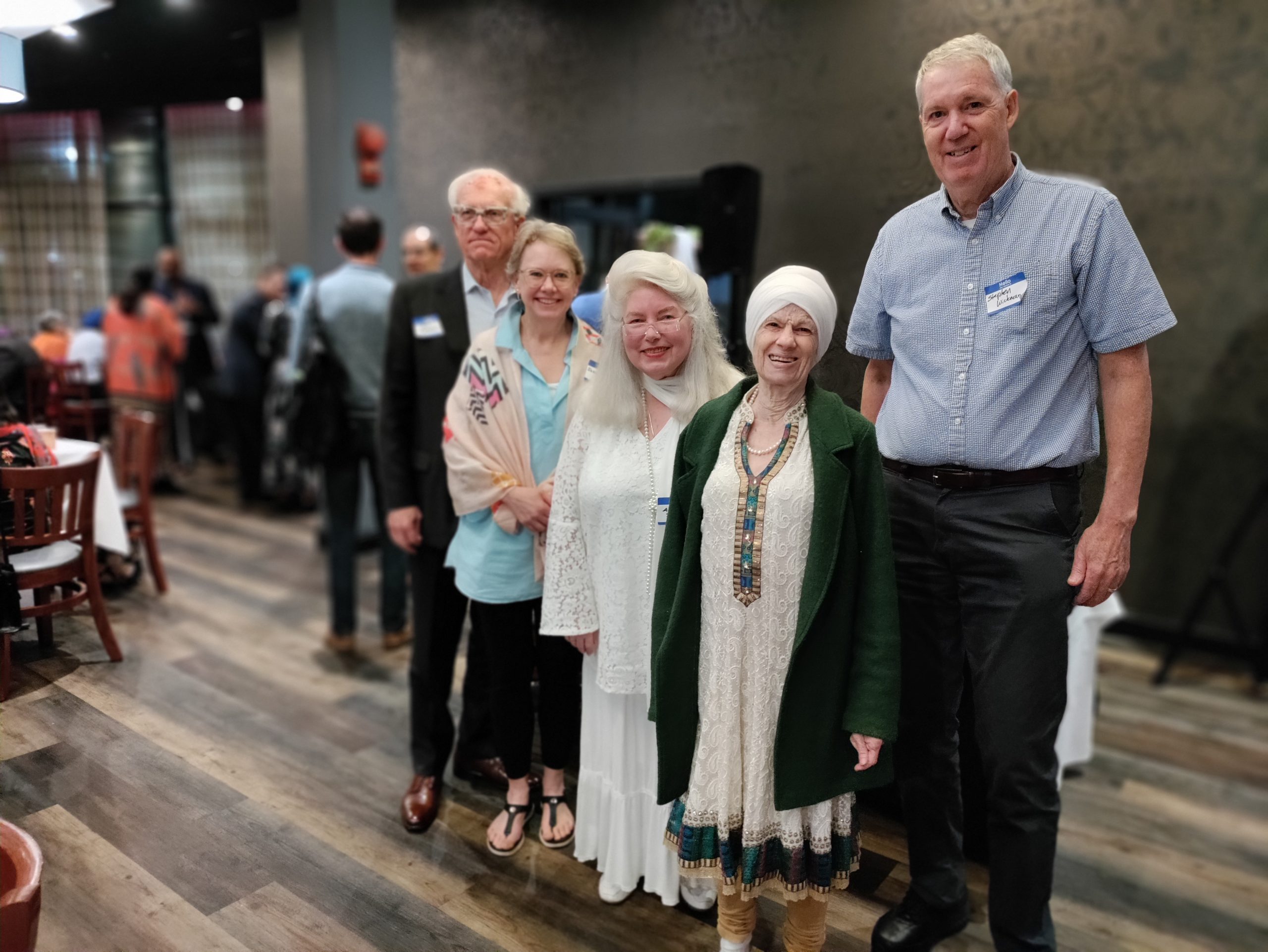
The holy month of Ramadan came to a close on April 21st.
During this period, our brothers and sisters in the northern Virginia Muslim community hosted several Interfaith Iftars. An Iftar is a meal taken at sundown to break the daily fast that occurs during Ramadan.
Our Muslim friends invited people of all faith traditions to join them for this special meal for fellowship and to learn more about Islam and the meaning of Ramadan. Interfaith Iftars were hosted by the Dar Al Hijrah Islamic Center, the American Turkish Friendship Society and by the McLean Islamic Center in conjunction with the Jewish Islamic Dialogue Society of Washington (JIDS). There may have been others, but these were the ones known to me.
I was honored to attend the Interfaith Iftar hosted by the McLean Islamic Center/Jewish Islamic Dialogue Society of Washington (JIDS). We heard a panel discussion led by member of the Muslim and Jewish communities, enjoyed conversing with people from different faith traditions, and dined on delicious food prepared by the Bombay Tandoor Restaurant.
Gatherings such as these remind me of why my participation with Tysons Interfaith is so meaningful in my life. What a privilege it is to learn more about how people of other faith traditions experience and worship God and to be in community with people who respect and honor the spiritual practices of their neighbors. Please consider joining us! tysonsinterfaith.org
The following photo was taken at the McLean Islamic Center/Jewish Islamic Dialogue Society Iftar on April 16, 2023. Representing Tysons Interfaith and their faith communities at the event (left to right): Bill Larson, Emmanuel Lutheran; Susan Posey, Redeemer Lutheran; Andra Baylus, the Meher Baba Spiritual Community; Adarsh Khalsa, the Sikh Community; and Stephen Wickman, St. Thomas Episcopal.
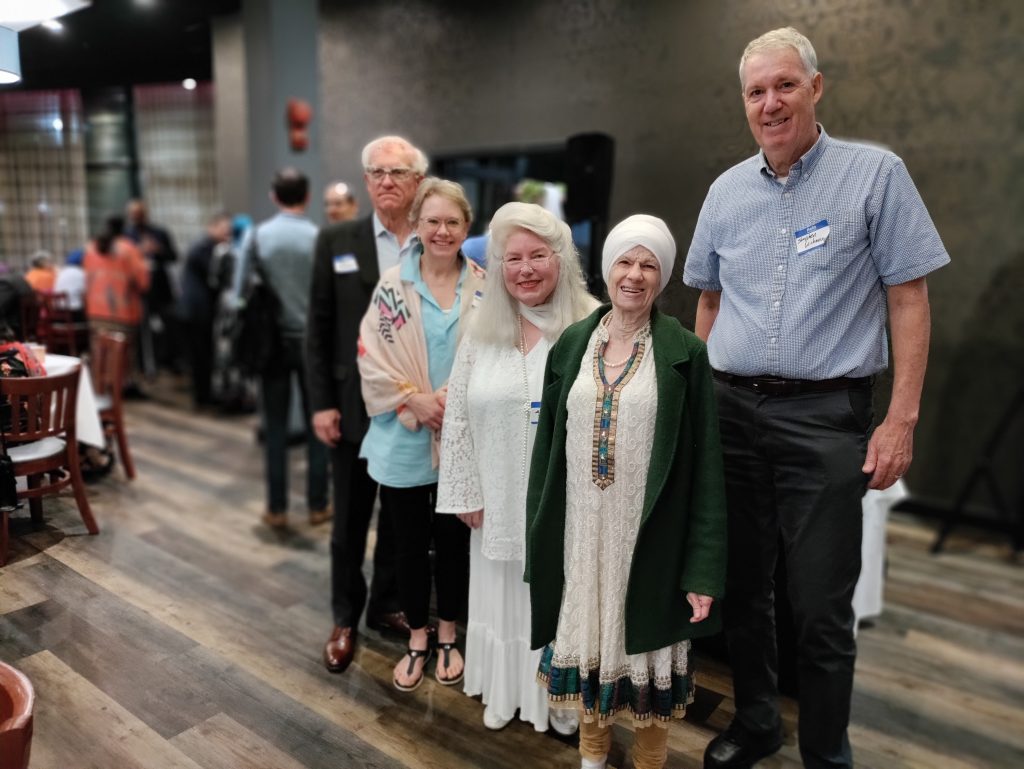
This blog post is the expressed opinion of its writer and does not necessarily reflect the views of Tysons Interfaith or its members.
